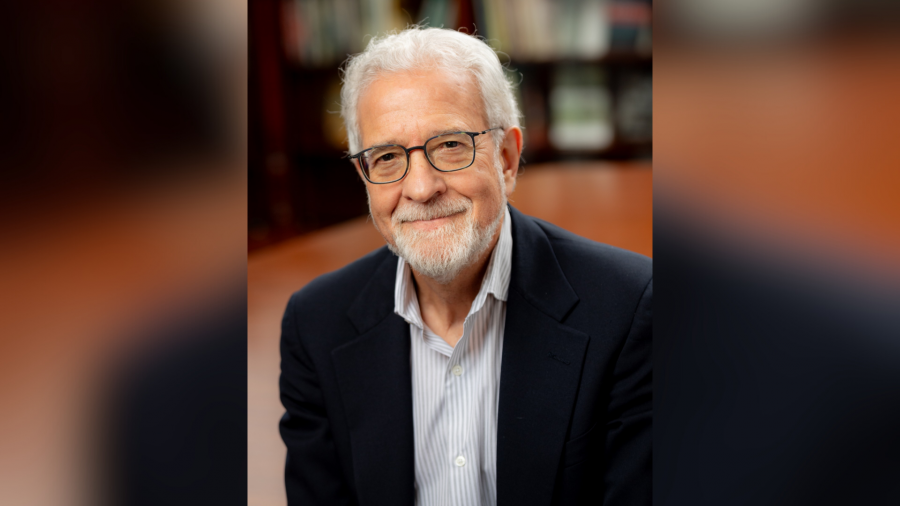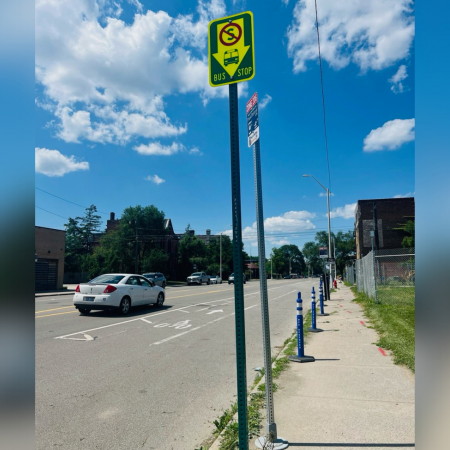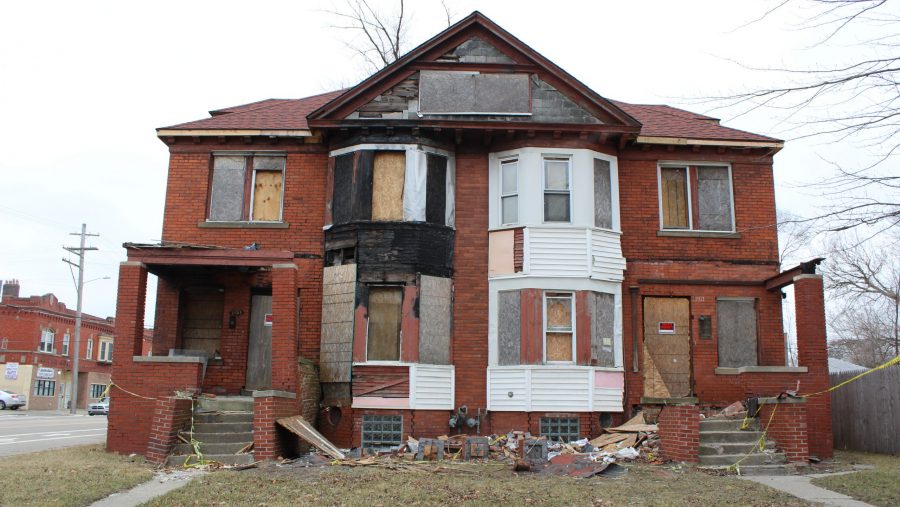A judge is set to decide whether low-level radioactive material left over from the creation of the first atomic bomb can find its forever home in a metro Detroit landfill.
The state of New York wants to send about 6,000 cubic yards of tainted soil and 4,000 gallons of contaminated groundwater to a waste disposal site near Belleville, Michigan.
It’s one of a handful in the country licensed to dispose of such waste.
Communities near the site, including Canton Township, filed a lawsuit to stop shipments of the toxic material from New York.
Canton Township Supervisor Anne Marie Graham-Hudak says the suit kept those remnants of the Manhattan Project out of Michigan so far. But not other contaminated material.
Listen: Graham-Hudak on keeping toxic waste out of Michigan landfill
The following interview has been edited for clarity and length.
Anne Marie Graham-Hudak: At this time, we still have this kind of waste coming into Michigan, whether it be into the injection well in Romulus or into the Wayne disposal site. But we’re hoping this lawsuit helps us launch some precedents to stop that.
Quinn Klinefelter, WDET News: But the specific one from New York has not come yet?
AMH: No. And it was supposed to start coming basically in January. So we’re glad that we were able to stop it. We met with the judge, the hearing was in May and the judge is scheduled to make a ruling on July 2. We hope that happens. We’ve been working also with Michigan state Sen. Darrin Camilleri (D-Trenton) and state Rep. Reggie Miller (D-Van Buren Twp). They have two bills that are going to increase tipping fees, amongst many other things.
“The EPA were saying that this was safe. Our question was, ‘If this is so safe, why is it being moved? Why don’t you just mitigate it in place?’ And that’s still what we’re questioning.”
– Anne Marie Graham-Hudak, Canton Township supervisor
Our tipping fees are one of the lowest in the nation. We’re at roughly 36 cents a ton, so we’re basically inviting people to come dump into Michigan. In other states you’re looking at $13 a ton — that just exacerbates what we already have. And at some point our landfills will be full and we will be looking for other places. The Canton landfill maybe has five years left. The EPA were saying that this was safe. Our question was, “If this is so safe, why is it being moved? Why don’t you just mitigate it in place?” And that’s still what we’re questioning. Radioactive waste in the body is absorbed and it’s additive, so if you live near where they’re dumping it, that’s a problem.
Also, Michigan has 21% of the world’s fresh water, and we’re putting this in a dense area. They’ve got schools nearby. The groundwater takes it out to the Rouge River, which takes it to the Detroit River, which takes it out to the Great Lakes. So why are we even thinking of putting it there? Also, they’re going to store the waste in what they call “burritos.” They wrap the waste in these plastic burritos and then come here and bury it and put a cap on it. But they could not even guarantee that the plastic they’re going to wrap it in will match the half-life of some of this radioactive dirt. I’m a retired engineer. One of the things that I worked on before I left Ford Motor Company was electromagnetic radiation — that was actually one of my favorite classes in college. And they can’t guarantee how this waste will stay encompassed in this plastic. There’s no test on this plastic that had been done to see that. I think their guidelines are way too narrow. But they’re going to keep dumping it, which makes it additive, and it doesn’t go away. It’s a constant radiation.
QK: So you don’t trust what the agencies or the company are saying about this?
AMH: Correct. I do not trust it. I think some of the guidelines that have been made in Michigan, especially, are leaning more towards favoring companies. We’re an automotive area and we know that we’ve got PFAS. We know that, in the early days, automotive companies would dump (material.) There’s brownfields here for a reason, because companies dumped. And I really believe that some of our land is contaminated. I think our guidelines in Michigan are way too low. They protect companies more than they do our residents. This is a public health issue, it really is.
QK: So what remedy would you seek at this point?
AMH: That we stop this. State Sen. Darrin Camilleri’s bill actually states that we just stop everything from coming in. We do more studies and more testing. We do not allow any more radioactive waste to come into Michigan. We do not allow any more new sites to be established. I know a lot of the businesses are concerned about this, but if you look at it, even hospitals generate radioactive waste. They do X-rays, MRI’s, things like that. So how do we mitigate in place what we have instead of transporting it? I don’t think we should be transporting it. Quit thinking about kicking things down the road and saying, “Oh, hey, we’re just gonna keep doing this. We’re gonna keep making nuclear reactors and we’ll just keep burying it, not really thinking about what’s going to happen in the future.” I think that we’ve done that for too long and too haphazardly. Our limits need to be looked at. I think that they’re more pro-business than they are pro-public health. That is my biggest concern.
QK: So that’s what you would hope to have happen. You’ve been dealing with this issue for a while now. What do you think is within the realms of reality?
AMH: I think if we want it to be more in the business of reality it can be. Look at the concerns raised by the agencies, the mayors and supervisors and the townspeople. That’s why we have this injunction, that’s why we’re trying to push this legislation through. The U.S. Chamber of Commerce needs to take a look at things a little bit more. Let’s just talk about changing tipping fees. They’re saying they don’t agree with that. But we’re just a dumping state based on 36 cents a ton.
QK: If the disposal company comes back and says, “We’re licensed to do this. As you say, hospitals and other places keep making this kind of material. This site is allowed to take it and we’ve got to put it somewhere. So why not here?” How would you answer them back?
AMH: My answer is that we need to study this even more. I can understand that we have to decide what to do with Michigan’s waste, where this is happening. But taking outside waste, it just gives us less space to figure out what to do with our own. And it also is in a densely populated area. There is an interstate commerce clause that does not allow us to stop. There would have to be a constitutional change on the federal level also, because this is considered trading commerce and money.
QK: Have you ever had much reaction back from the federal government on this entire topic, no matter which administration was running it at the time?
AMH: Not really. They keep pointing to the interstate commerce clause. People always say it’s hard to change a constitution and it will never happen. But the U.S. Supreme Court just changed some things that were in the Constitution for 50 years. So I think it’s a possibility. I think the need is there. The want has to make it happen.
















